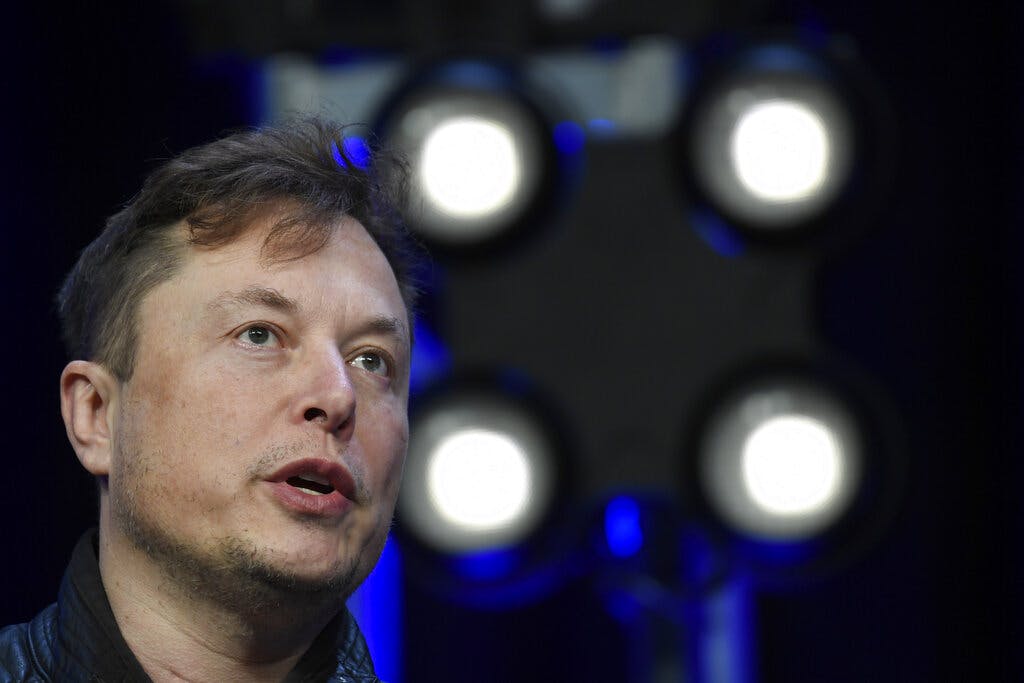Elon Musk Admits to Putin Call, but Not About Crimea
Musk reportedly refused a Ukrainian request to activate his Starlink satellite Internet service in Russian-occupied Crimea.

In a sign of the odd supporting role that social media can sometimes play in affairs of state, entrepreneur Elon Musk has admitted to speaking with President Putin, but claims it was only once and on the subject of space, not Ukraine.
That conversation “was about 18 months ago,” Mr. Musk said via Twitter, in a refutation of a new claim that he spoke with the Russian strongman shortly before floating a proposal for peace between Moscow and Kyiv earlier this month. Also coming to the fore now is the centrality of the Crimean peninsula, which Russia seized from Ukraine in 2014 and subsequently annexed, in this war.
A noted foreign policy analyst, Ian Bremmer, claimed that when he spoke to Mr. Musk two weeks ago, Mr. Musk told him that he had had a “direct conversation” with Mr. Putin before posting the peace proposal tweet and that it left him convinced the Russian strongman would ultimately resort to using nuclear weapons should Ukraine try to invade or otherwise reclaim the strategic peninsula.
Business Insider reported that Mr. Bremmer also said that Mr. Musk had been asked by Ukraine’s defense ministry to activate his Starlink satellite Internet service in Russian-occupied Crimea, but that he “refused given the potential for escalation.”
Curiously, despite Mr. Musk’s denial of any recent communication with Mr. Putin, in his tweet he made a pointed reference to some of the Crimean peninsula’s Russian history. In addition to the suggestion that Crimea’s status as Russian territory should be recognized, he also proffered that its water supply should be assured — another reflection of Russian positions.
In his newsletter this week, Mr. Bremmer asserted that Mr. Putin told Mr. Musk that he would be “prepared to negotiate” with Ukraine if Russia keeps control of Crimea and if Ukraine accepted “a formal status of neutrality.” Mr. Bremmer added that Mr. Putin purportedly conveyed to Mr. Musk that should President Zelensky try to retake Crimea by force, it would lead to Russian retaliation with a nuclear strike on Ukraine and that “Elon said everything needed to be done to avoid that outcome.”
Mr. Musk’s denial that he spoke with Mr. Putin just prior to his peace plan suggestion is also curious considering a tacit acknowledgement by the White House that such a call may have taken place. The National Security Council spokesman, John Kirby, said: “Obviously, he’s not representing the United States government in those conversations.”
Be that as it may, when Elon Musk tweets, the world listens, even if it doesn’t always like what the billionaire Tesla chief has to say. That Mr. Musk’s previous suggestion that Russia should retain sovereignty over Crimea did not go over well in Ukraine is a gross understatement. Mr. Zelensly responded then with a wry tweet of his own, and some of his staff were less gracious. “F— off is my very diplomatic reply to you @elonmusk,” one of his top advisors, Andriy Melnyk, said via Twitter.
The attack on the Crimean bridge over the Kerch Strait, which links the Russian mainland to Crimea, was attributed to Ukraine and underscores the gravity of the situation on the ground, in contrast to the relative levity of the back-and-forth quips and exchanges characteristic of Twitter. That is all in the realm of the virtual, but the risk of escalation is certainly very real.
Tensions over the bridge attack itself are showing signs of some stabilization. The Moscow Times reported on Wednesday that Russia’s Federal Security Service, the FSB, arrested eight suspects, five of whom were apparently Russian and three Ukrainian. The FSB accused Ukraine’s secret services, the SBU, of orchestrating the attack, “with a Kyiv agent having coordinated the transit of the explosives.”
Whether the incident triggered Russia’s wave of missile strikes across Ukraine this week or if those strikes had, as Mr. Kirby suggested in an interview with CNN, been previously planned, is almost immaterial. More relevant is that Moscow’s targeting of civilian infrastructure reflects its anemic performance on the frontlines themselves, where Ukrainian forces continue to make important gains.
Even Moscow’s touted “kamikaze” drones are failing. The Iranian-made Shahed 135 Loitering Drones are launched from a Russian base in Crimea and are flown in clusters of five to 10, which in theory should make it tougher for Ukraine’s defense systems to shoot them down. Moscow hopes that at least a few get through, and according to Ukrainian intelligence has ordered 2,400 of the drones from Iran. Apparently, though, the very fact that the Shahids can linger above targets for hours and can only hit fixed positions is making them vulnerable to Ukrainian fire.
The Telegraph reported that Mr. Zelensky said on Tuesday that Russian forces had launched the kamikaze drones almost hourly since the start of Moscow’s fresh onslaught on Monday morning. Their range, though billed as being up to 600 miles, may in practice be not much more than 125 miles. The newspaper cited some reports according to which Ukraine’s forces have even been able to take out some of the drones with guns.
It is not only drones Ukraine is clipping down. On Wednesday, Ukrainian forces in the southern part of the country reportedly shot down four Russian helicopters in the space of 18 minutes.

